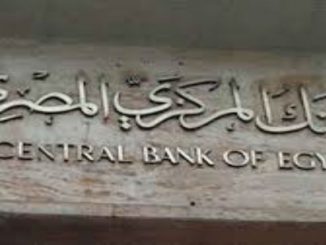
It has been a hard week for the Egyptian currency. “The Egyptian pound hit a record low against the dollar on the black market after the North African country’s central bank failed to devalue the currency despite a floundering economy,” according to Wall Street Journal.
Wall Street Journal cited some currency traders in Cairo saying that the currency was trading afternoon at around 14.2 to a U.S. dollar.
That is nearly 60% weaker than the official exchange rates the central bank has kept steady at about 8.88 a dollar since devaluing the currency in March.
In response the parallel market in Egypt has flourished as small and big businesses in Egypt have turned to the black market either to fulfill their foreign-currency needs as the cash-strapped country rations what it has to pay for vital imports such as medicines and wheat.
Last July, Egypt’s national currency had dropped to more than 13 per dollar, but recovered a little after Egypt in August reached a preliminary agreement with the International Monetary Fund for a $12 billion loan to support its strained finances.
According to WSJ,”Bets on a devaluation of the currency at the central bank’s weekly foreign exchange auction on Tuesday increased after the country’s net foreign reserves rose to $19.59 billion at the end of September from $16.56 billion in August. Before the increase last month, Egypt’s foreign reserves were about half of the level at the end of 2010.”
The disclosure about the sharp increase in reserves—a key criteria for any potential currency devaluation—came after local press reports said Egypt’s central bank governor met the Abdel Fattah al-Sisi over the weekend and discussed foreign reserves and food-price stability, among other issues.
Accordingly, most market entities interpreted the recent news flow as indicating an imminent currency devaluation, likely this week. However, the central bank held the exchange rate steady at its regular auction this week, contrary to expectations, which has resulted in the currency further weakening on the black market, bankers and currency traders say.
“Still, expectations of a currency devaluation remain high,” reported WSJ.
Egypt undergoes one of its harshest economic crisis due to the acute shortage of dollars as a result of the withdrawal in foreign revenue resources because of the decline in foreign investments and tourism amid political unrest and a spate of terror attacks in recent months.
“A weaker pound would help lure foreign investors, increase the Egyptian market’s competitiveness and help reduce the strain in the balance of payments. Egypt doesn’t officially peg its currency to the dollar but its central bank actively manages the exchange rate,”said WSJ.
But to move toward a more flexible exchange rate that reflects the present market conditions-which the IMF has suggested- the country needs to have higher foreign reserves.
Moreover,Egypt is also in talks with other agencies and allies other than the IMF for more funding to help plug a funding gap that authorities estimate at $21 billion over the coming three years.
Some of that funding is likely to have come in September, analysts say. The World Bank early September said it disbursed $1 billion to Egypt.
On the other hand, Hany Farahat, a senior economist at Cairo-based CI Capital says that devaluation alone won’t do so. He said,“Easing capital controls to revive portfolio investments and [foreign direct investment] is what really can bring this FX dilemma to an end.”



